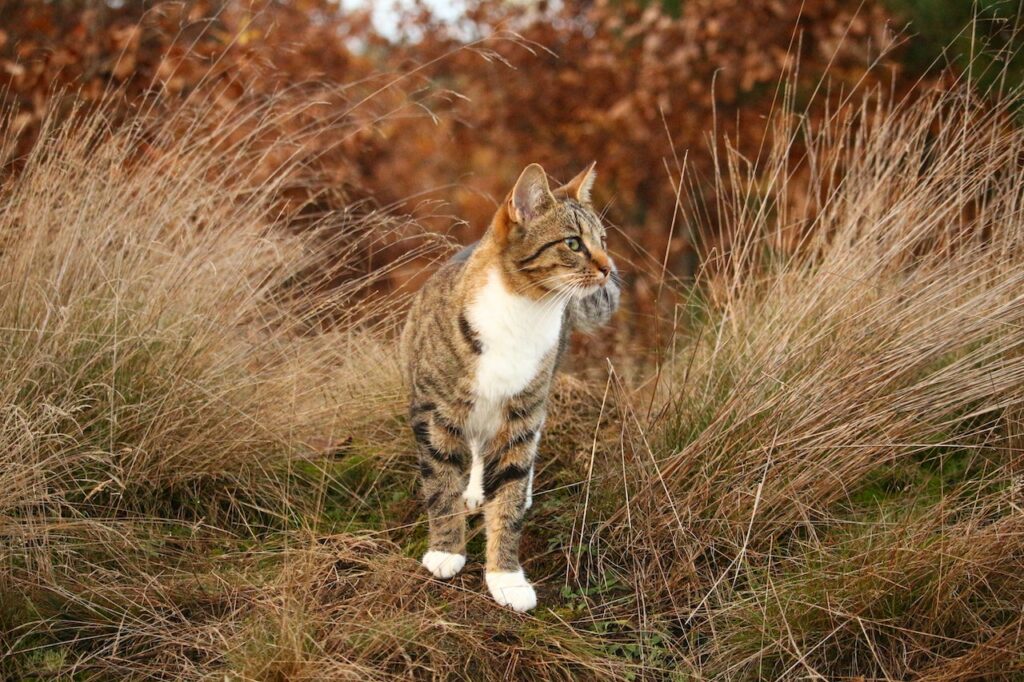Uncovering the Mystery: Why Is My Cat Suddenly Scared?
Have you ever noticed your cat suddenly become scared, even though nothing has changed in its environment? Cats can exhibit fearful behaviour for many different reasons, and as a pet owner, it’s important to understand why this might be happening. This article will explore why cats may suddenly become scared, the signs of fear to look out for, and potential causes and treatments to help bring your beloved pet back to its happy self. So if you have been wondering why my cat is scared all of a sudden – read on!
Why Is My Cat Scared All of a Sudden?
It’s not uncommon for cats to become terrified of something or someone they don’t recognize or understand. While it can be difficult to determine the exact cause of your cat’s sudden fear, you should consider some common causes when trying to figure out why your feline is scared. Understanding the possible sources of fear in cats can help you determine the best way to provide comfort and reassurance for your pet during anxiety.
Common Causes of Fear and Anxiety in Cats
There are many reasons why your cat might be scared all of a sudden. Some common causes include:
Exposure to loud noises or unfamiliar people/animals
Loud noises, such as fireworks or thunder, can startle and frighten cats, especially if they are already prone to anxiety. New people or animals in the house can also trigger fear in cats, who may not be used to new faces.
Separation anxiety
If you have recently begun leaving your cat alone for long periods, he may become anxious due to separation from his primary caretaker. This type of anxiety usually manifests as excessive meowing, scratching at furniture and walls, or other destructive behaviours.
Changes in environment
Moving houses, changing home furniture, or even rearranging the cat’s favourite sleeping spot can all cause stress and fear in felines who prefer predictability over change.
Traumatic experiences – If your cat has had a traumatic experience with another animal (such as being attacked by a dog) or person (like being hit), he may become fearful easily and display signs of distress when faced with similar situations again.
Illness
Cats who are ill may exhibit signs of fear more often than healthy ones because their bodies may not be able to cope with stressors as effectively due to compromised immune systems.
Identifying Signs Of Fear In Your Cat
To recognize when your cat is feeling afraid, you must pay close attention to their behaviour and body language. Some indicators that your feline friend is scared include:
- Hiding behind furniture or under beds
- Meowing excessively
- Biting/scratching when approached
- Overgrooming certain areas of fur
- Avoiding eye contact
Providing Comfort For A Scared Cat
If you identify that your cat is scared suddenly, you must take steps towards helping them feel more comfortable and secure. Here are some suggested tips on how to do this:
Offer reassurance
Talk calmly and gently stroke your cat’s fur while speaking soothing words until they begin displaying relaxed body language (e.g., head tilt). Doing this will help them associate positive reinforcement with their surroundings and create an environment where they feel safe again.
Create hiding spots
Give your cat where they can hide when they feel anxious (e.g., cardboard boxes). Knowing that an escape route is available if needed can give them security during moments of heightened fearfulness.
Reduce environmental triggers
Identify any potential triggers associated with their current state (e.g., loud sounds) and try limiting exposure whenever possible, so that discomfort levels don’t escalate further than necessary during these episodes.
Provide distraction
If all else fails, sometimes providing distractions like toys or treats can help get their mind off whatever is causing them distress.
Conclusion
It’s natural for cats to feel scared from time to time; however, prolonged fear can lead to further complications such as depression and illness if left unchecked for too long. By understanding what could be causing these episodes, identifying signs, and taking steps towards creating an atmosphere where they feel secure again, owners can decrease the probability that their pet will remain scared for extended periods.
If you are worried about your cat’s health and want to ensure that your pet is financially safeguarded in case of medical concerns, consider getting pet insurance from furrr.co.uk. With comprehensive coverage options tailored to fit your needs, you can rest assured that all possible medical costs associated with treating your beloved feline companion will be taken care of if they ever become scared or unwell. Get started today and give yourself peace of mind of knowing that your cat is safe and secure no matter what!










